Why do I need to deworm my pet?
Parasitic worms are as common as fleas to your pet, especially in puppies and kittens. From one centimetre hookworms to metre-long flat tapeworms, they can also be transmitted to people in some instances.
The most common worms are roundworms, hookworms and tapeworms and infection often goes unnoticed. However, ignoring possible symptoms and not undertaking treatment can potentially lead to serious illness.



Above images courtesy of the US Center for Disease Control
There are four common ways worms can be transmitted:
- Through the placenta of a pregnant mother to the unborn foetus;
- Infection of milk during nursing;
- Contact with soil contaminated with the faeces of an infected animal; and
- Ingestion of fleas carrying the worm during grooming.
Minor infections carry little significance but nearly all these parasites will induce serious disease if present in large numbers. Many animals have a degree of immunity but if stressed, the numbers of worms can increase from a harmless population to one that can threaten the health of an animal.
Signs that your animal may be suffering with worms include gastrointestinal disturbances, coughing, weakness, weight loss, anaemia and a swollen abdomen in pups or kittens.
Fortunately, there are a wide-variety of effective deworming products available. Animals can be treated from as young as eight weeks and should be given treatment every month until they are six months old. Thereafter, they should received treatment every three months.
Preventative Pet Health
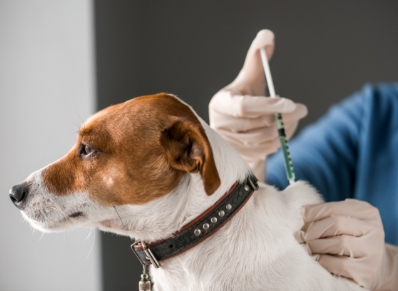
Vaccination
Vaccination protects your pet against highly infectious and sometimes fatal diseases. It is particularly important for young animals not only because their immune systems are not fully developed but also so they can be socialised to ...
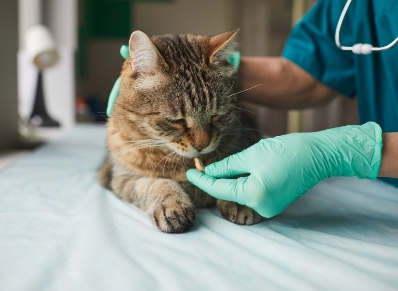
Deworming
Parasitic worms are as common as fleas to your pet, especially in puppies and kittens. From one centimetre hookworms to metre-long flat tapeworms, they can also be transmitted to people in some instances ...

Flea and tick control
Fleas and ticks are very common in the warm, humid climate of Hong Kong. They can cause a variety of conditions from skin disease and allergies to severe anaemias. Control of these pests is therefore important for the welfare of your ...
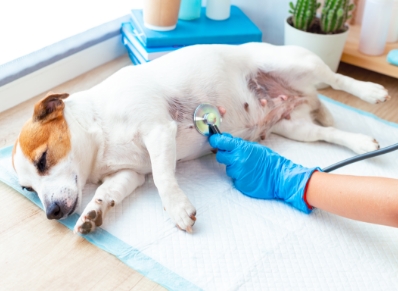
Heartworm prevention
Heartworm is a parasitic roundworm carried by mosquitoes. It can infect dogs, cats and other animals, though rarely humans, and with our warm, humid climate is a significant threat to animals in Hong Kong ...
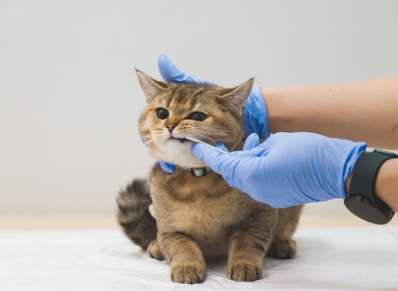
Dental care
Dental disease is one of the most common problems in domestic pets with symptoms including bad breath, swollen gums, loose teeth, drooling and pain when eating. Here are a few things we can do to help animals maintain oral hygiene ...
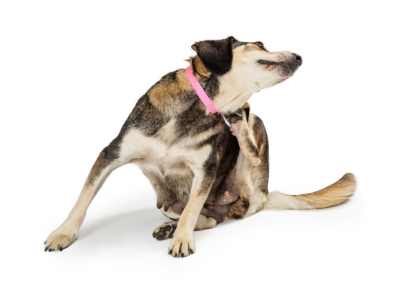
Skin disease
Skin disease affects thousands of dogs and cats every year, ranging from minor “hot spots” to extremely debilitating long-term skin problems. This is particularly the case in Hong Kong’s hot, humid summers but it can occur at any ...

Obesity control
Obesity is a term for any animal which weighs 15% more than it should. Just as with humans, it is not cute and carries significant health risks. And, again just like humans, obesity is a disease that predisposes your pet to many ...

Healthy Paws Lifestyle Campaigns
The SPCA is committed to animal welfare and providing quality veterinary care. In recent years we have run several campaigns to promote a healthy lifestyle not just for pets but people too. After all, a healthy pet means a happy ...

Underwater Treadmill
We are grateful to Mrs Diana Wu, alongside Sasha and Andrew Benadie, for their generous sponsorship that has allowed us to install an underwater rehabilitation treadmill at our Hong Kong centre, the first of its kind in Hong Kong ...











